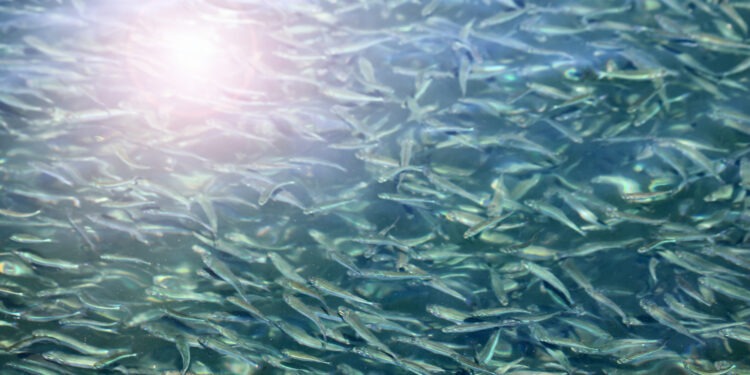Forage fish, a worrying situation in the North-East Atlantic – With the publication of a new report, Oceana has revealed that only one in six forage fish populations in the North-East Atlantic is managed sustainably and under optimal conditions. This raises the need for improvement in the management of these small fish, especially in view of the upcoming negotiations on fishing limits.
Forage fish such as sandeels, sprats and herring are a key source of food for a wide range of marine species, including mammals and seabirds, as well as commercially important fish such as cod and whiting. However, overfishing puts their survival at risk. Out of 32 populations analysed, only 16% are managed sustainably.
Vera Coelho, Oceana’s Vice-President in Europe, stresses that the situation requires a change of perspective from fisheries ministers. They must consider the crucial role of these fish in the marine ecosystem, rather than adopting a ‘catch as much as you can’ approach.
Current management policies focus on maximising long-term catches, but this does not guarantee an adequate supply for the predators that depend on these fish. Moreover, most of the forage fish are used for the production of meal and oil for fish farming, depriving marine ecosystems of their importance.
Oceana recommends the adoption of ecosystem-based management, taking into account the vital role of forage fish in marine food webs. It is essential to establish catch limits based on accurate data, implement adaptive management strategies and protect crucial habitats.
Maintaining healthy populations of forage fish will benefit not only the marine environment but also fishing communities and society as a whole.
Forage fish, a worrying situation in the north-east Atlantic







